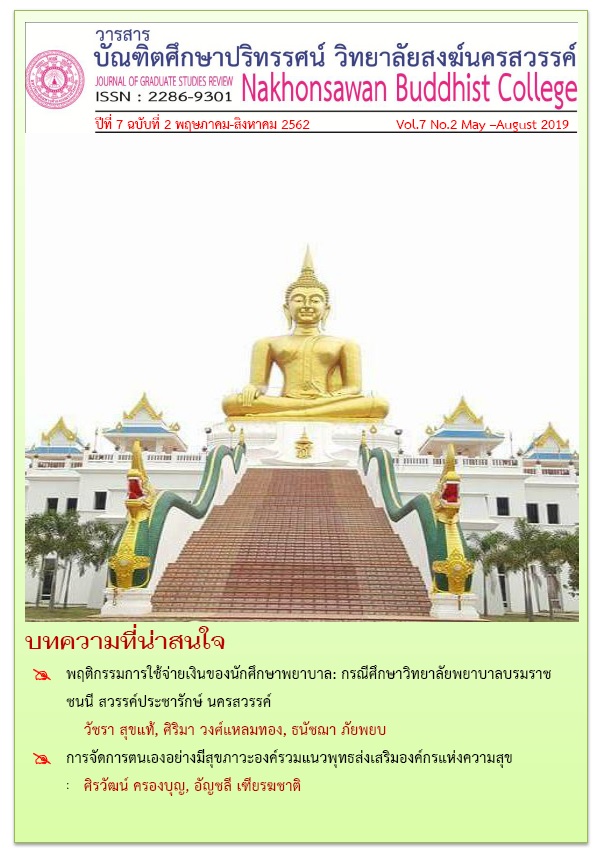Knowledge Management according to Buddhist Personal Administration
Main Article Content
Abstract
Knowledge management is the collection, creation, organization, exchange, and application of knowledge in organizations. By developing the system from data to information in order to create knowledge and ultimately intelligence. Knowledge management consists of a set of operations used by various organizations. In order to identify, create, display and spread knowledge For the sake of implementing and learning within the organization Which leads to more efficient information management Which is necessary for good business operations Most large organizations have resources for knowledge management. It is usually part of the information technology department or the human resource management department. The knowledge management model is usually organized in accordance with the objectives of the organization and wishes to achieve specific results, such as to share wisdom, to increase work efficiency, for a competitive advantage, or to increase innovation levels. Higher. And if it is knowledge management in personnel management in Buddhist style, this means personnel management in accordance with the principles Pathan 4, including SangwaraPathãn, PahãnaPathãn PhawanãPathãn and Anurakhanã Pathãn


